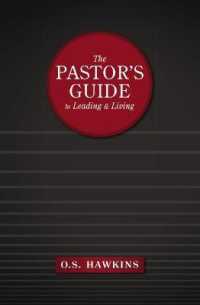- ホーム
- > 洋書
- > ドイツ書
- > Humanities, Arts & Music
- > Psychology
- > theoretical psychology
Full Description
In the discussion of cognitive neuroscience, some criticism can easily be considered (such as the mereological fallacy that represents that talking about the person is substituted with talking bout the brain).







